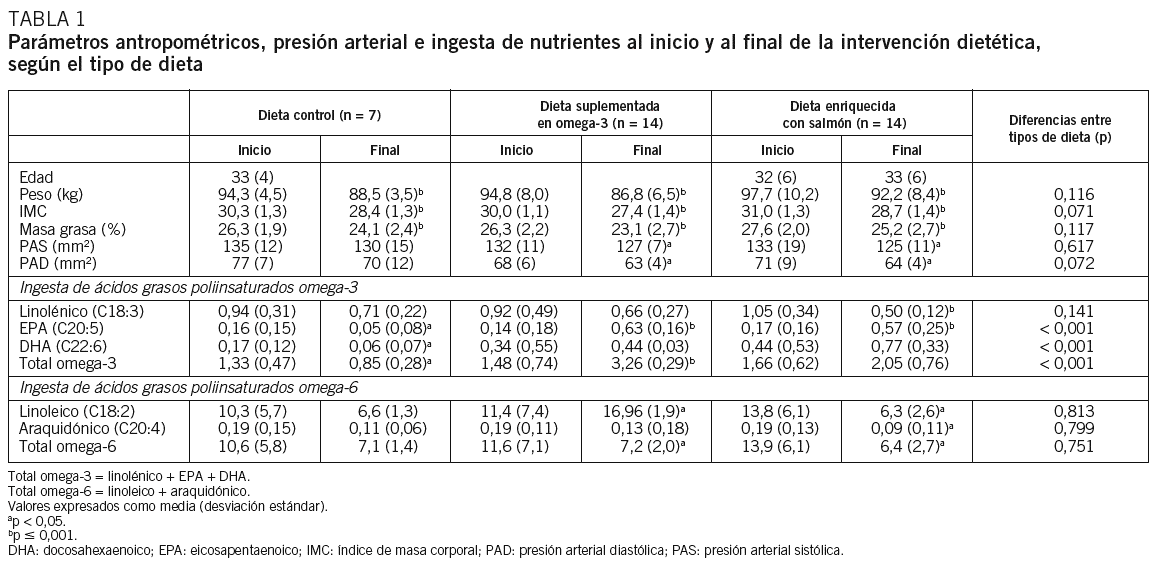Journal Information
Vol. 130. Issue 1.
Pages 10-12 (January 2008)
Vol. 130. Issue 1.
Pages 10-12 (January 2008)
DOI: 10.1157/13114541
Inclusión de ácidos grasos omega-3 en una dieta hipocalórica para mejorar el efecto en el perfil de lípidos circulantes
Omega-3 fatty acids inclusion as part of an energy restricted diet to improve the effect on blood lipids
Visits
3168
María Marquésa, Dolores Parraa, Mairead Kielyb, Narcisa Bandarrac, Inga Thorsdottird, J. Alfredo Martíneza
a Departamento de Ciencias de la Alimentación, Fisiología y Toxicología. Universidad de Navarra. Pamplona. Navarra. España.
b Department of Food and Nutritional Sciences. University College Cork. Cork. Ireland.
c IPIMAR. Lisboa. Portugal.
d Unit for Nutrition Research. Landspitali-University Hospital & Department of Food Science and Human Nutrition. University of Iceland. Iceland.
This item has received
Article information
Background and objective: The type of dietary fat influences the blood lipid profile. The aim of this study was to evaluate the effects of omega-3 fatty acids on circulating cholesterol levels and other lipids, when included in an energy-restricted diet to nutritionally treat obesity. Material and method: Thirty-five patients (BMI: 30.5 [1.3], age: 33 [6] years), were randomly assigned during 8 weeks one of the following diets: omega-3 fatty acids supplemented (EPA + DHA), enriched in salmon (150 g/day, 3 times/week) or control (placebo). Anthropometry and blood measurements were determined at baseline (day 0) and at endpoint (day 56). Results: Circulating total cholesterol statistically decreased after the slimming nutritional intervention in all experimental groups, being more pronounced in the enriched diet group (p < 0.001). The HDL-c levels decreased in both placebo (p = 0.004) and omega-3 supplemented (p = 0.053) dietary groups, while subjects who followed the salmon diet did not show such changes in HDL-c (p = 0.936). Conclusions: These data suggest that a balanced hypocaloric diet enriched in salmon results in a beneficial effect on the plasma lipid profile that could be mediated by the salmon composition as a whole, and not only by the omega-3 content.
Keywords:
Omega-3
Polyunsaturated fatty acids
Fish
Fish oil
Cholesterol
Hypocaloric diet
Weight loss
These are the options to access the full texts of the publication Medicina Clínica
Subscriber
Subscribe
Purchase
Contact
Phone for subscriptions and reporting of errors
From Monday to Friday from 9 a.m. to 6 p.m. (GMT + 1) except for the months of July and August which will be from 9 a.m. to 3 p.m.
Calls from Spain
932 415 960
Calls from outside Spain
+34 932 415 960
E-mail








